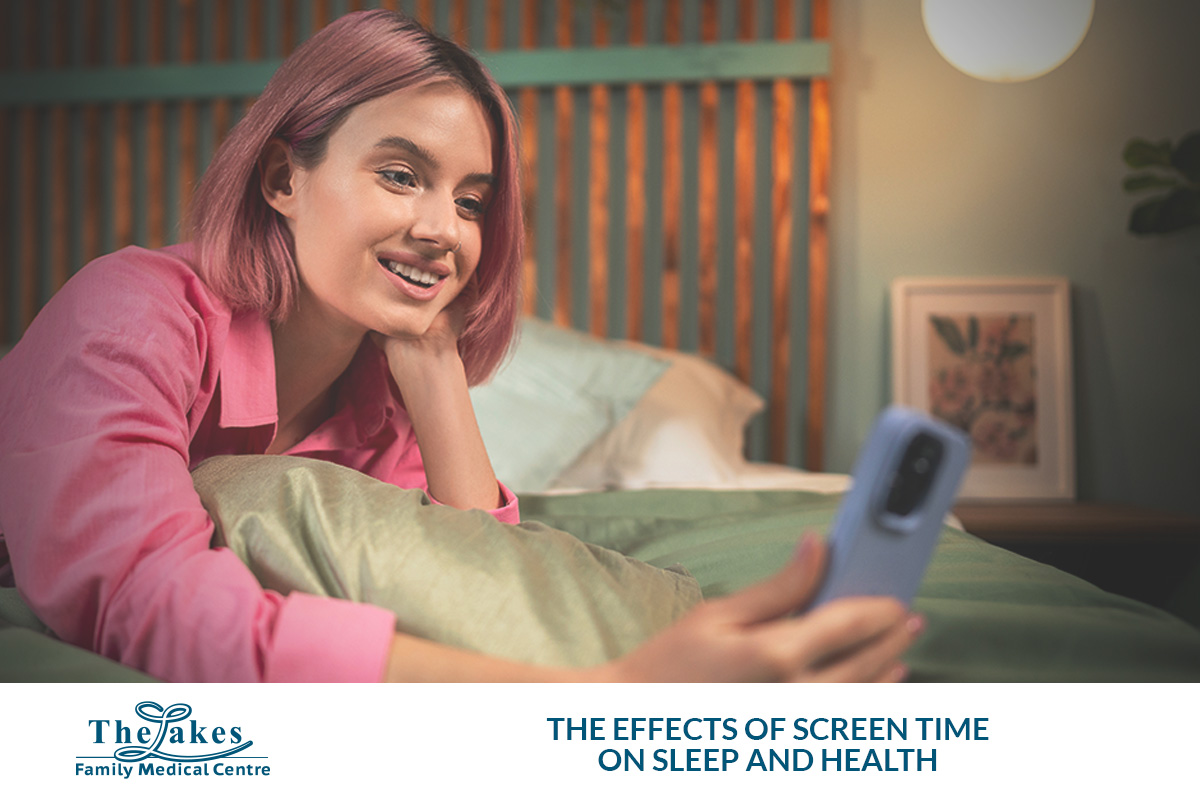
In the digital age, screens have become an integral part of our daily lives. From smartphones and tablets to computers and televisions, digital devices play a central role in our work, education, and leisure activities. However, the pervasive use of screens, especially before bedtime, has raised concerns about its impact on sleep quality and overall health. This article examines the effects of screen time on sleep and health, offering insights and strategies to mitigate potential negative impacts.
Understanding the Impact of Screen Time
Screen time, particularly in the evening, can interfere with the body’s natural sleep-wake cycle. The blue light emitted by screens inhibits the production of melatonin, the hormone responsible for regulating sleep, making it more difficult to fall asleep. Prolonged screen use can also lead to digital eye strain, characterized by dry eyes, blurred vision, and headaches.
Screen Time and Sleep
Research indicates a direct correlation between excessive screen time and sleep disturbances. The stimulation from screens, along with the suppression of melatonin production, can delay sleep onset, reduce sleep duration, and impair sleep quality. These sleep disruptions can have cascading effects on health, including increased risk of obesity, diabetes, and cardiovascular disease.
Strategies for Reducing Screen Time Impact
- Implement a Digital Curfew: Establish a rule to turn off all digital devices at least one hour before bedtime. This helps prepare your body for sleep by allowing melatonin levels to rise.
- Use Blue Light Filters: Many devices offer settings or apps that reduce blue light exposure in the evening. These filters can minimize the impact on melatonin production and help preserve sleep quality.
- Create a Relaxing Bedtime Routine: Develop a pre-sleep routine that promotes relaxation, such as reading a book, taking a warm bath, or practicing meditation. This signals to your body that it’s time to wind down.
- Keep Bedrooms Screen-Free: Designate the bedroom as a screen-free zone to strengthen the association between the bedroom and sleep.
- Manage Daytime Screen Use: Take regular breaks from screens throughout the day to reduce eye strain and prevent disruption to the body’s internal clock.
The Bigger Picture: Screen Time and Health
Beyond sleep, excessive screen time is associated with a range of health issues, including poor posture, reduced physical activity, and heightened risk of mental health problems. Balancing screen time with physical activities and face-to-face interactions is essential for physical and psychological well-being.
Conclusion
While screens are an unavoidable part of modern life, their impact on sleep and health necessitates mindful usage. By adopting strategies to limit evening screen time, reduce blue light exposure, and encourage healthy habits, individuals can mitigate the negative effects of screens on sleep quality and overall health. Embracing these practices can lead to improved sleep, enhanced well-being, and a more balanced relationship with technology.
Finally, embark on whole year with a commitment to your health. At The Lakes Family Medical Centre, we’re here to guide you every step of the way. Together, let’s make this year your healthiest yet! Head to Hotdoc and book an appointment,, Start with personalised healthcare!
Learn more about The Lakes Family Medical Centre :




